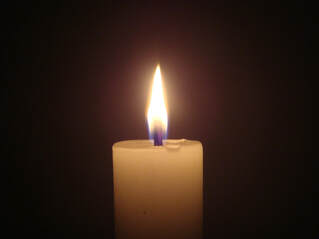 Reb Elimelekh of Lyzhansk, a disciple of the Maggid and brother of Reb Zushia, used to express his immense gratitude that he was assured a place in Olam Haba- the World to Come. He explained that when he leaves his body and ascends to the upper realms, they will ask him- “Did you study Torah to the best of your ability?” “No,” he would answer. “Did you pray with full kavanah, with all your heart and all your soul?” “No.” “Have you done all the Mitzvot and good deeds that you should have done?” “No.” “Well then come right on in! We can see you are telling the truth, and for that you deserve all the rewards of the World to Come!” The “World to Come” is actually free, and it is not even in the future, but is present now- thank God! The wholeness of your innermost being cannot get anymore whole than it already is! But, it is easy to get blocked from feeling and knowing this truth for yourself, simply by craving validation and defending yourself. Reb Elimelekh was considered to be a tzaddik, a spiritual master, yet he had no need to claim anything. He admits- “I could have done better.” He is not defending himself to the heavenly court, and therefore he is open to receive the spiritual gift that is ever-flowing. Why does defensiveness cut you off from your inherent bliss? Because defensiveness actually creates your “self” as something separate, as something incomplete. That’s the paradox- if you claim to be somehow superior, valid, righteous or whatever, you create a sense of self that is inherently inferior, invalid, incomplete and separate. But if you admit- “I could have done better… and whatever good I’ve done is by the grace of God”- then you relax the tense contraction of self concern, and return to the Wholeness that you already are, but that you can’t claim or own. Then, simply to be is a tremendous gift, not a burden. In fact, it’s the need to defend yourself that’s the burden! Let go of that, and gratitude naturally follows. In this week’s reading, The Torah says of Moses, “v’ha’ish Moshe anav me’od- and the man Moses was very humble…” Moses was humble?? He was the tireless and sometimes ruthless leader of the Children of Israel. How could he have been humble? But humility doesn’t mean meekness or weakness. It means not grasping after greatness for yourself. It means understanding that the greatness you are comes from beyond “you”; in fact there is no separate “you” at all, there is just the Mystery of Being in all Its different forms. That's just what Moses did- he was not concerned with his own greatness. He was serving the Greatness that called to him. What Greatness is calling to you? At this moment, what are you being asked to step up to and serve? When your attention is on That, rather than your own image or desire to be validated or seen in a positive light, it’s humbling… and liberating. Which brings us to a second paradox: In order to keep your attention on Being, rather than on your identity, you have to keep your awareness rooted in your body. That’s right- your own fragile, material, temporary, flawed, physical body is actually the gateway to Eternity, when your attention is rooted there. As the parshah opens: “…beha’alotkha et haneirot, el mul p’nei hamenorah ya’iru shivat haneirot- when you kindle the lamps, toward the face of the menorah shall the seven lamps cast light.” The light is your awareness. The menorah is your body, with its seven centers of consciousness and seven basic “middot”- spiritual qualities that express your inner Divinity, beyond ego. Of these qualities, “humility” and “gratitude” are often coupled together as the fifth middah (if you are counting from the top down, or the third of you count from the bottom up). On this Shabbos Beha’a lotkha, I bless you that you should ignite the fire of your awareness to greater depth and presence in your body, that you more deeply taste the freedom and bliss of your inner Divinity, and that you recommit to serve the Greatness in whatever way you are being called to serve. Be good to one another, Good Shabbos!
1 Comment
Wayne
6/8/2015 05:38:28 am
I thank you again for the teaching on humility couoled with gratitude. Humility is a quality that is poorly understood, and is not often associated with becoming. Gratitude on the other hand, is easier to grasp; yet is a quality that we don't practice enough to the full extent that we "should be." That is why the beginning story of "are we all that we should be" struck home. This is a simple truth that has profound implications as we reflect on our actions, or in many other cases, that which we did not do. Acceptance requires an ability to recognize truth, see how we have fallen short; and seeing that what was done was our best at the time. Gratitude allows us the freedom to become by being in the now. Being fully present allows us the grace to feel the presence of the Divine as well as ourselves. Thanks again.
Reply
Leave a Reply. |
Archives
July 2024
|
 RSS Feed
RSS Feed